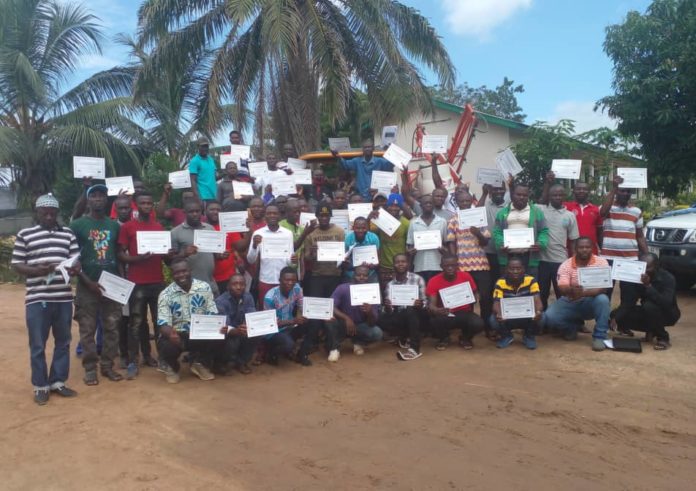Mechanisation is the key service needed by farmers for Ghana to become self-sufficient in rice production.
The Director of the Agricultural Engineering Services Directorate at the Ministry of Food and Agriculture, A. K. B Deyang said l quality mechanized tools for land preparation, planting and harvesting can greatly improve the productivity of small-scale farmers, particularly rice growers.
He was speaking at a training programme organized by the John A. Kufuor Foundaton and partners in the Volta Region for 120 machinery service providers and 120 machinery operators from 147 districts.
The objective of the training is to equip them with the requisite knowledge and skills on proper handling and maintenance of agricultural machinery, as well as business development to enhance agricultural productivity.
The training forms part of a new phase of the “Public Private Partnership for Competitive and Inclusive Rice Value Chain Development: Planting for Food and Jobs (PFJ) Rice Chapter Project.”
The initiative popularly called the Ghana Rice Project is being rolled out by the Ministry of Food and Agriculture, the John A. Kufuor Foundation, Hopeline Institute, Sparkx Farms and Volta City Farms.
It is funded by the Alliance for a Green Revolution in Africa (AGRA).
Mr. Deyang explained that the initiative is sought to link existing mechanisation service providers and interested farmer groups to government’s periodic highly subsidized mechanisation equipment and other flexible opportunities initiated by MoFA to strengthen service delivery.
“We are here to assist farmers to grow; take this mechanization training home and make good use of it,” he said.
Ing. Eugene Moses Abio who is National Training Coordinator at the Agricultural Engineering Services Directorate of MOFA identified low technical skills as a major challenge militating against efforts to expand on the provision of mechanized agricultural services to farmers.
He said the ministry has been at the forefront of the importation of mass agricultural machinery and equipment to support farmers under subsidized and concessionary terms.
But poor handling and operation of equipment, leading to premature and frequent breakdowns as a result of low skill and technical knowhow of tractor operators, has derailed the initiative.
In order to fix this challenge, Ing. Ababio says the ministry is working with development partners to offer training directed at mechanization equipment operators across the country.
“The Ministry of Food and Agriculture in collaboration with the John A. Kufuor Foundation and other consortium partners are helping to train service providers across the country to help improve agricultural mechanization in Ghana,” he said.
Abudulai Yakubu, an expert in Agriculture mechanisation and facilitator of the 4-day training said the initiative is directly in line with the agricultural mechanisation strategy of the government of Ghana to modernize agriculture.
He indicated that the program is designed to train, educate, and empower users of agricultural tractors and other farm equipment.
“It is expected that at the end of the training operators will demonstrate underpinning knowledge of the concept and operating principles behind the operations, functions and proper adjustment of agricultural machineries and equipment,” Mr. Yakubu said.
“They will be equipped with requisite knowledge, skills and attitude to train especially their counterparts to apply the best practices of standard operating procedures in the use of agricultural machineries and equipment,” he added.
Programme Officer at the John A. Kufuor Foundation Jude Bopam said availability of quality mechanization service ia a major challenge for smallholder farmers, especially those in the rice value chain, which had necessitated the intervention by the Foundation and its partners.
In all, 242 participants have been trained at both Wenchi and Adidome mechanization training centers. Some 151 operators were issued with Driving Licenses E by the DVLA under the program.








